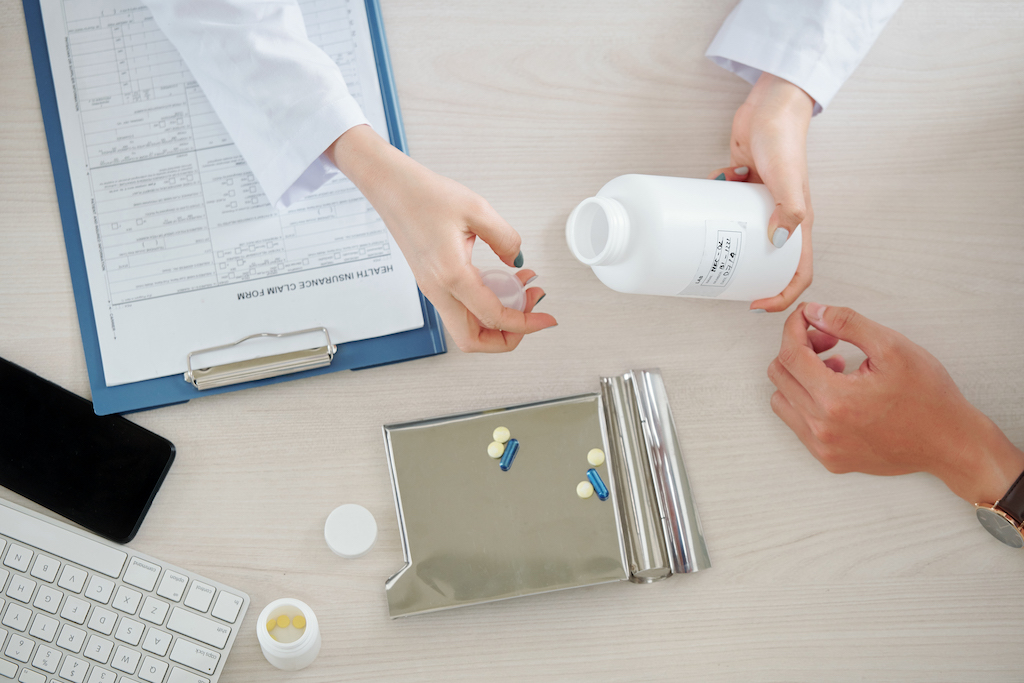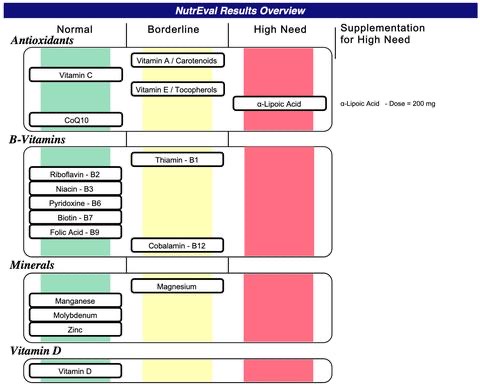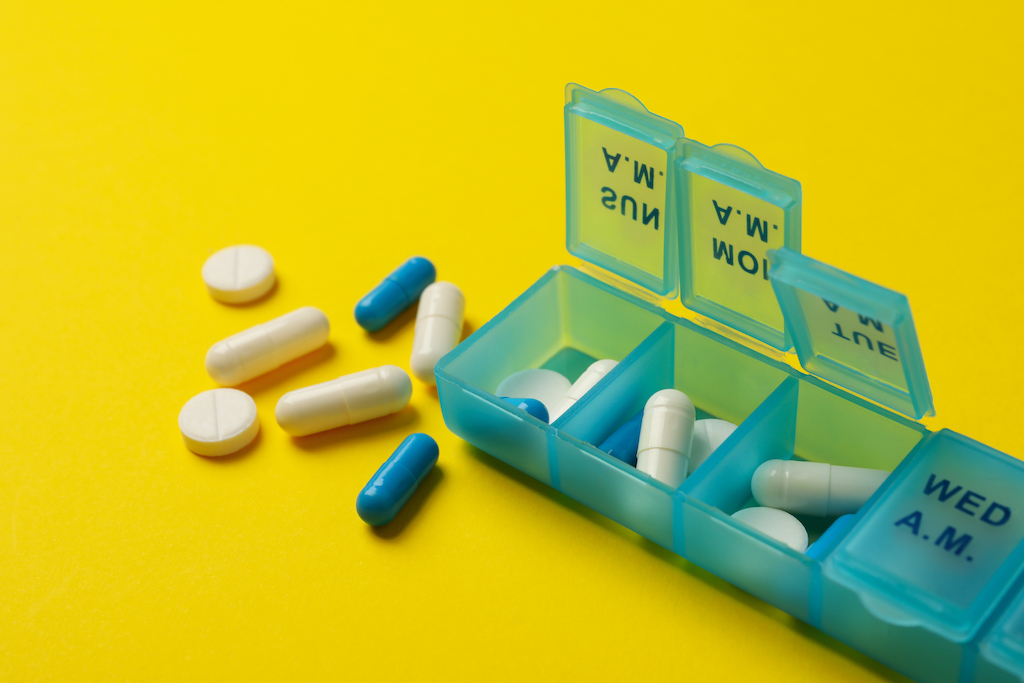How to Take Supplements Safely & Successfully
Thursday, December 9, 2021
1:02 PM

Nutritional supplements are among the hottest-selling consumer products.
Americans spend over $30 billion dollars per year on vitamins, minerals and herbs and over 77% of us take supplements. Supplements have numerous health and “quality of life”-improving properties but they are mysterious to most people. Even most doctors don’t know much about supplements, because physicians are typically get no education on nutrition or herbs in medical school. To make the situation worse, FDA regulations prohibit supplement companies from mentioning specific diseases and conditions that science says their supplements can help. This means there is widespread confusion and ignorance about supplements. Many people feel overwhelmed at all the options and don’t know whom to ask or where to start!
Dietary supplements are natural substances that are either found in nature or inside the human body. They are less regulated than pharmaceutical drugs and they are generally presumed to be safer:
Vitamins, minerals and herbs made up just over %2 of all medicines that caused US emergency room visits from 2013 to 2014 – compared to the 97% of ER visits that were caused by synthetic drugs.
But many people are just "popping" different supplements randomly and aren't quite sure if they are really helping or not.
9 Biohacking Tips to Optimize Your Supplement Intake
The following "biohacking secrets" from the Peak Health Center will help you explore nutritional supplements more safely with less risk of side effects:

1. Get as Much of Your Nutrition from Diet as Possible
Oftentimes, “less is more” when it comes to nutritional supplements. As the name suggests, they are intended to supplement an already health diet and not be a replacement for one. Rather than start with a high-potency multivitamin, eat a 100-gram serving of beef liver twice per week along with plenty of leafy green vegetables daily. Rather than chugging a pre-workout blend, start with black coffee. Rather than protein powder and mass gainer, eat some egg yolks and drink whole milk. Rather than stimulants, “cut” belly fat with intermittent fasting. Once you have fully optimized your protein, fat, carbohydrate, vitamin and mineral intake from food then you can begin to look at nutritional supplements for additional advantages.
Fix Your Lifestyle First, Before Turning to Supplements
If you can’t sleep at night, it can be tempting to just reach for some herbal sleeping pills. But unlike drugs, supplements are not as powerful at over-riding the body’s biological signals and they work more subtly. This means it is important to try to fix your sleep hygiene by avoiding caffeine after 2pm, turning off screens and lights 2 hours before bedtime to avoid disrupting your natural sleep cycle. If you are as struggling to build muscle you need to make lifestyle changes to manage stress, as too much of the stress hormone cortisol can cause muscle loss. If you are having digestive issues, you should optimize your diet before trying probiotics. Only after trying and failing to fix your underlying lifestyle issues should you then move on to the next step: supplements.

3. “Start Low and Go Slow” With Dosages
This important maxim in nutritional supplement therapy means that you should always start with low doses and increase them very slowly, over the course of weeks or months rather than days. You can split tablets and take fractions of them, or you can dissolve powders or pills to water and drink only a fraction of the liquid per day. If you are sensitive or you want to be very precise, you can get a digital milligram scale and that will allow you to easily measure tiny doses like 1/10th or 1/20th of a tablet or capsule’s contents.
The newest addition to Love Adorned is their full-time piercing studio which was carved out in the far right corner of the store. It is its own little private oasis where you can get professionally pierced by some of the best in the biz, as well as choose from the best piercing studs in the game. There’s a whole section of gold studs with so many styles to pick from — as well as other body piercing jewelry.

4. Be Careful with Fat-soluble Vitamins & Minerals
“If you take synthetic water soluble vitamins, such as vitamin C or B-vitamins, your body absorbs only as much of them as it needs and flushes out the rest,” says Dr. Bomi Joseph. “When it comes to fat-soluble vitamins like A, D, E & K: you have to be a lot more careful as you can take too much.” If you take too much of a fat-soluble vitamin, the excess can be stored in fat cells and it can negatively affect you for days or weeks afterwards. It’s even more important to be careful with mineral supplements like calcium, magnesium, potassium or zinc. These affect how your body systems operate as a whole and overdoses can be toxic or, in rare cases, even deadly. For example, too much calcium can cause anxiety and twitches and too much iodine can cause serious thyroid problems for some patients. It’s important to follow the directions on the label carefully and never take extra minerals or fat-soluble vitamins unless a knowledgeable doctor or naturopathic physician advises you to.
5. Try Single-Ingredient Supplements First
Say you are going to try out a simple supplement: a vitamin B12 tablet. You can be fairly sure that if you take one tablet daily for one week and you begin to feel anxious then the B12 must be causing it. But some supplements are multi-formula “shotgun” blends that contain dozens and sometimes even a hundred or more herbs added into a single pill or powder mix. While some of these supplements are very good and highly effective for many people, they are harder to ‘troubleshoot’ if they don’t work as intended. If a supplement contains a dozen active ingredients and the whole blend makes you anxious, there is no telling which ingredient is causing it. Meanwhile, the other ingredients could have been potentially beneficial to you. Sometimes, single-ingredient or simple supplements are easier to experiment with. Rather than taking commercial pre-workout blends filled with stimulants, artificial colors and flavorings, you can make your own custom pre-workout blend out of bulk powders like creatine and beta-alanine. That way you have full control and can get exactly what you need without getting “too much.”

6. Use Bloodwork & Genetic Screening Tests as a Guideline
Don’t just grab supplements off the shelf and start trying them randomly, find out what you need first. Ask your doctor (preferably a nutritionally-informed one like an integrated or functional medicine practitioner) to run bloodwork to check your nutrient status. Common nutrient insufficiencies include vitamin D, magnesium, iodine, iron, vitamin B12, vitamin A, zinc and folate. More advanced tests include NutraEval and the organic acids test (OAT) which analyzes urine metabolites to gain insight into your biochemistry. Finally, there are also genetic tests that screen for nutrient-gene issues like MTHFR (possible folate deficiency) or MTRR (possible B12 deficiency) or the genetic inability to convert beta-carotene into the active form of vitamin A. Not everyone is equally capable of extracting, converting and utilizing vitamins from food. If you have one of these genetic conditions, and you learn about it thanks to a screening test, then a special diet or vitamin supplement can help you tremendously.
7. Take Most of Your Supplements in the Morning
Supplements can have powerful and effects on mood, metabolism, hormones and energy production that can last for several hours (or more) after taking them. They can alter the circadian rhythm, the body’s natural sleep-wake cycle, and this can cause you to awaken several hours earlier in the morning or have a difficult time falling asleep at night. You can avoid this by taking most of your supplements in the morning upon awakening. If any of them upset your stomach, you can take those ones after breakfast or mid-morning. Once you know for sure that you tolerate a supplement well, or if it’s a supplement that you are taking specifically for relaxation or sleep, then you can experiment with taking in the mid-afternoon or evening.
8. Change Only One Supplement at a Time
Most people who take supplements tend take more than 1 of them. So how can you tell what is working and what isn’t? You should be patient and add or drop no more than 1 new supplement to your regimen per week and see how it makes you feel. If you add magnesium and vitamin D at the same time and you feel jittery, you’ll have no idea which one is causing it. So be extremely patient and methodical when it comes to adding new supplements. Change only one variable (supplement) per week and you should get a much better idea of how each subtle change in your regimen is affecting you. Keeping experimenting with adding or dropping one supplement per week until you feel really great, with zero unwanted side effects. If something isn’t working after giving it a fair trial, drop or switch it out.

9. Stay Organized & Take Notes
If you are like most people, you will sometimes forget whether or not you already took your vitamins this morning. The easiest way to get around this is to buy a weekly “pill organizer,” available at any drug store, that has a separate compartment for storing your pill supplements for each day of the week. It’s easy to tell if you took them or not by just looking and seeing if they are there in the box for that day. You should also keep a journal that describes how you feel after taking each individual supplement, combination of supplements (a.k.a. “stack”) or if you experienced any unwanted side effects. While this may seem like a lot of effort, it’s well worth it. It is really easy to forget the subtle details or effects of a supplement that you may desperately need in the future, when it could become a “lifesaver.” Keeping your supplements organized and taking notes is the way to go!
Enjoy More Success & Fewer Side Effects
By following these 9 "biohacking ground rules," you can more safely explore the incredible world of nutritional supplements with better chance of success and less side effects. There has never been a more exciting time in history than now: more new research and higher quality supplement options than ever before!
So start low, go slow and make the most of what supplements can do for you!
